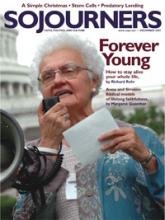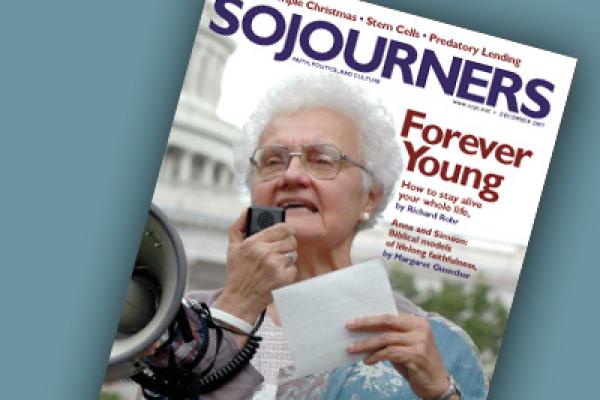If today we do not have a strong spirituality of aging, if we idealize youth more than old age, if we do not age gracefully, I wonder how much we have lost?
Time is no longer filled with presence and possibility, but has become merely a place for problem-solving, critique, and a necessary self-assertion. I have a tile on my hearth that says “No wise man ever wished to be younger.” (No wise woman either!) That is what you know by the second half of life and what you cannot know in any other way—although it’s possible to get to the second half of life and still not know it, as cosmetic surgeons can tell us.
It all depends on whether you actually “experience your experiences” and allow them to expand you. This is what I call natural contemplation or true presence. Without it, we just become elderly but do not become elders.
Maybe that is our problem. In Albuquerque where I serve, we have named our men’s ministry M.A.L.Es, which is an acronym for “men as learners and elders.” We saw that there were two things that most men are not naturally drawn toward: ongoing spiritual growth and their needed vocation as elders in family and society. Borrowing the phrase from Erik Erikson, we hope to create “generative” men who can actively care about the next generation.
For more than 14 years, I was a jail chaplain in Albuquerque. During that time I met many men and women who had been ravaged by life and had closed down, but I also met some who were actually wise elders (yes, even in jail!). I remember one older Latino man who served as a father figure for many of the younger men on his cell block, most of whom had huge father wounds. He told me that he has practiced different virtues during various periods of his life. For six months to a year at a time, he would focus on one, such as patience, mercy, positive thinking, or hopeful conversation. I recognized the “old” spirituality in the Christian tradition of “the cardinal virtues.”
Read the Full Article

